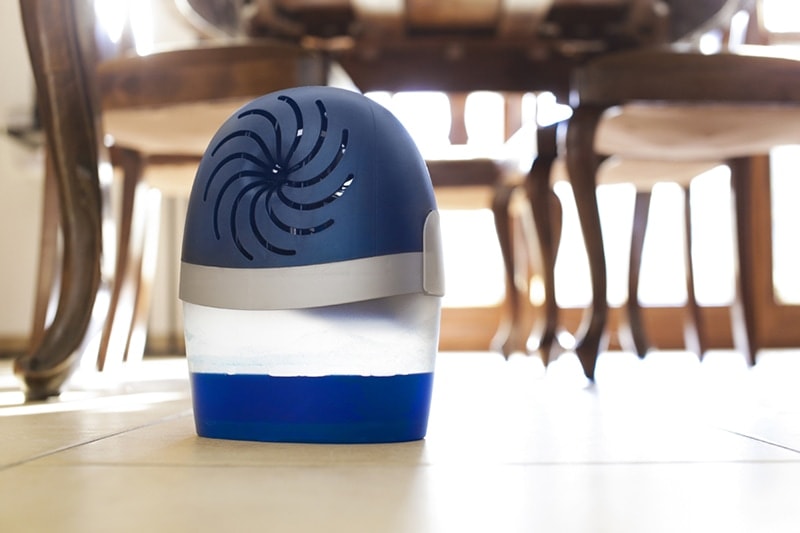Why Is a Home Dehumidifier Important?

Although most , homeowners understand the importance of having a working heating, ventilation, and air conditioning (HVAC) system to provide heating and cooling throughout the year, some people don’t realize the equally important factor of controlling a home’s humidity levels as well.
Our professionals at want to provide you with the information to create a healthy, comfortable environment for you and your family. Here is some important information about dehumidifiers and the role they play in your home’s health and comfort.
What Is a Dehumidifier?
A dehumidifier is a piece of equipment that removes moisture from the surrounding air. It works opposite of a humidifier, which adds moisture to the air. Dehumidifiers are often used in humid climates during the summer months in areas where weather turns both hot and humid, or year-round in humid areas of a home like a basement.
These systems work similar to air conditioners by pulling in warm, moist air throughout your home using the ductwork. This air then passes over coils that contain coolant, which forces the moisture to condense on the coil and then fall into a container. Room dehumidifiers may need to be emptied occasionally, or you can attach a drainage tube to allow the unit to constantly drain
What Are the Benefits of a Dehumidifier?
By removing the moisture from your Maryland home, you’ll not only make your home feel cooler and more comfortable, but you’ll also create an environment that is less likely to allow things like dust mites, mold spores, and other allergens to thrive. For both your and your home’s health, you want to strive for the highest indoor air quality possible.
According to ENERGY STAR®, the ideal humidity levels for a residential home generally falls between 30 and 50 percent. However, the range can vary depending on the outside temperatures. You may want to invest in a communicating thermostat that senses humidity to continually monitor the humidity levels in your home and control it accordingly.
Another thing to remember is that new and remodeled homes may be more likely to trap moisture due to advances in insulation and building practices, creating much tighter homes. Although creating a tight home helps it to be more energy efficient, it can result in indoor air quality issues.
What Are Signs You Need a Dehumidifier?
You may be able to notice signs around your home that indicate your indoor moisture levels are too high. Here are some things to watch for:
- Condensation on your windows or doors. If you see small drops of water beading or a fog layer building up on the inside of your windows, you may have a humidity problem. This moisture could eventually rot the wood around your windows or allow mold to grow.
- Mold growth. Check your basement ceilings and the corners of your walls for mold growth. Moisture rises, so you will often see the first evidence of mold in these areas.
- Musty odor. If you detect a musty smell in your basement, crawl space, laundry room, entrances, or garage, you may be fighting a moisture issue.
- Basement watermarks. Many homes may have reoccurring spring water runoff, which can seep into a basement. Look for white or grey water-level marks as evidence of this problem.
- Blistering paint or peeling wallpaper. Excess moisture in the air can eventually penetrate the surrounding walls. It becomes steam and can cause your paint and wallpaper to lose adhesion, resulting in bubbles or peeling.
- Creaky doors, windows, and floors. As wood absorbs moisture, it will expand. This can cause joints, screws, and the structural frame of your home to loosen and creak.
Contact Your Indoor Air Quality Experts
If you’re concerned about humidity levels in your home, turn to in , for help. We can test humidity levels as well as recommend home hygrometers and dehumidifiers to assist you in managing the problem before it causes long-term, expensive damage. Call or request service online today.
Need HVAC Service?
Contact the experts at Ground Loop Heating and Air Conditioning.
Call us at 410-836-1706!
